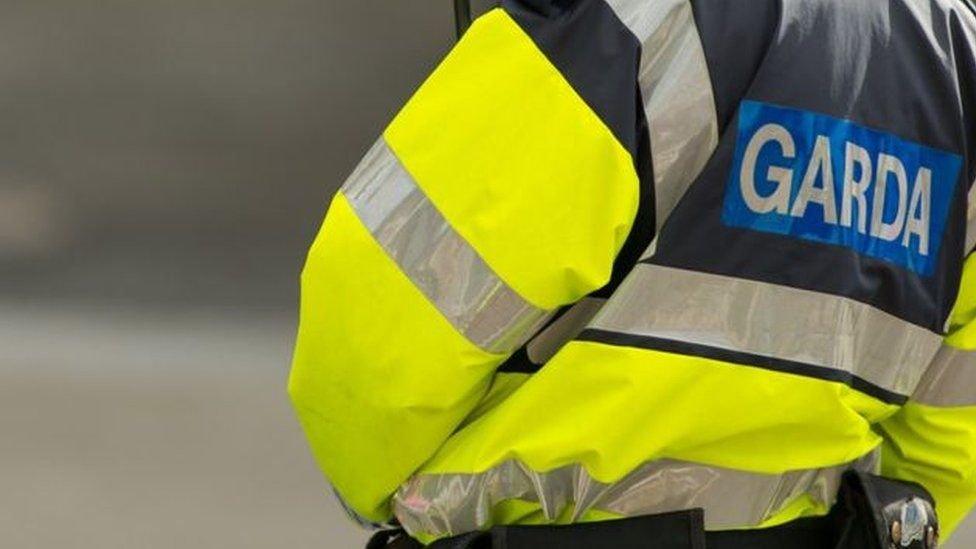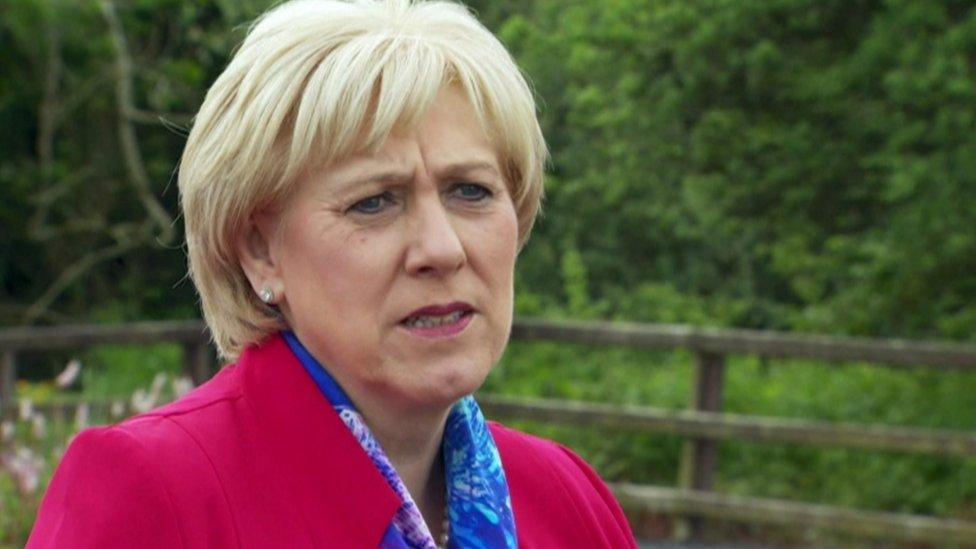Dara Quigley: Irish minister apologises to family over CCTV leak
- Published

The CCTV footage was shared inappropriately by a member of the Gardaí (Irish police) who has since resigned
The Irish justice minister has apologised to the family of a woman who took her own life shortly after naked images of her were shared online by a member of the Garda (Irish police).
Dara Quigley, who was 36, died in April 2017, just days after CCTV footage of her was uploaded to the internet.
Five days before her death, she had been filmed walking on a Dublin street naked and in a distressed state.
Minister Heather Humphreys said sharing the CCTV was "absolutely unacceptable".
"I really do want to say I'm very sorry for what happened, it shouldn't have happened," Ms Humphreys told Irish broadcaster RTÉ, external.
The head of the force, Garda Commissioner Drew Harris, has also apologised for the "unacceptable breach of trust" by one of his officers, who has since resigned.
Ms Quigley's death was the subject of an inquest this week, and Tipperary Coroner's Court heard details of the CCTV leak and the subsequent investigation by a police watchdog.
The journalist and blogger had been suffering from mental health issues and addiction problems and was in a vulnerable state when she was arrested on Dublin's Harcourt Street on 7 April, 2017.
A male Garda employee obtained a copy of CCTV footage and shared it on social media, where it was viewed about 125,000 times before being being taken down.
'Gross breach of rights'
Ms Quigley took her own life on 12 April 2017 and her body was found in Lough Derg, County Tipperary.
In an interview with RTÉ radio in 2019, Ms Quigley's mother, Aileen Malone, said her daughter was aware before her death that the CCTV footage had been uploaded to the internet.
At this week's inquest, extracts of a letter from the Garda Commissioner were read to the court.
According to the Irish Times, external. Mr Harris apologised for the actions of the garda who had "grossly breached" Ms Quigley's "constitutional and data protection rights".

Justice Minister Heather Humphreys said she was prepared to meet Ms Quigley's mother to apologise in person
Speaking to RTÉ radio on Wednesday, Ms Humphreys said: "As minister for justice, I want to also apologise to the family of the late Dara.
"They have suffered enough through the loss of Dara without having to deal with this."
The minister added: "The Garda Síochána have codes of conduct that all members of the force should be adhering to."
She said this included "policies and procedures around abuse of power for sexual gain" and Garda employees who did not adhere would be held to account.
Coco's law
Ms Humphreys pointed out that last year, the government introduced new legislation which made it a criminal offence to distribute intimate images without consent.
The Harassment, Harmful Communications and Related Offences Bill 2017 was signed into law last December.
The Bill is also known as Coco's Law after Dubliner Nicole Fox.
Ms Fox, who was known affectionately as Coco to her family, died by suicide following years of online bullying.